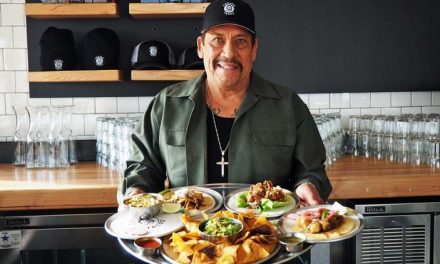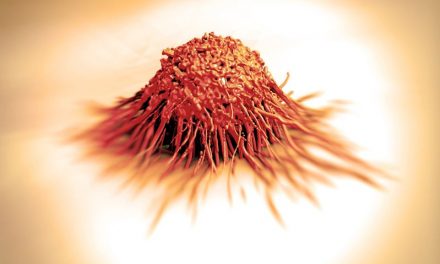A Monsanto executive said he wanted to “beat the shit out of” a mothers’ group that urged the company to stop selling its Roundup weedkiller, according to internal emails obtained by lawyers for victims who say the pesticide caused their cancer.
The emails, reported this week by New Food Economy, occurred in July 2013. They expose an exchange between Dr. Daniel Goldstein of Monsanto and two outside consultants about how to reply to an open letter from Moms Across America, a grassroots advocacy group. The emails came to light during the discovery process for litigation against Bayer (Monsanto’s parent company) over Roundup, which three separate juries have found caused cancer in people.
RELATED STORY:
Moms Across America’s letter to then-Monsanto CEO Hugh Grant quoted scientific studies linking glyphosate, the active ingredient in Roundup, to cancer. The letter also denounced the company’s marketing of seeds for genetically modified foods. The letter said:
“We Moms know your Mom would be proud of you if you put the health of the nation first and stopped selling GMO seeds and spraying Glyphosate (Roundup®) and other harsher pesticides.”1
In the emails, Goldstein noted that the group was making “a pretty nasty looking set of allegations” and that he had been “arguing for a week to beat the shit out of them.”1
RELATED STORY:
Using identical obscene language, one of the consultants Bruce Chassy, (then a professor at the University of Illinois) also supported attacking the moms’ group. The other consultant, Wayne Parrot, (a University of Georgia crop scientist) disagreed: “You can’t beat up mothers, even if they are dumb mothers but you can beat up the organic industry,”1 which he falsely claimed “paid for and wrote that letter.”1
Environmental Working Group (EWG) President Ken Cook said:
“These ugly emails reveal the utter contempt that Monsanto has for public health and for consumers, including mothers who only want to protect their kids’ health. Bayer is reeling from its monumental blunder of buying Monsanto, and these emails should remind them that they acquired the company that gave us DDT, Agent Orange and PCBs.”1
RELATED STORY:
In the same email exchange, Goldstein remarked about a surge in public comments to the Environmental Protection Agency (EPA) on its proposed rule to permit higher levels of glyphosate on supermarket produce. Goldstein wrote:
“BTW – a minor tolerance increase petition for glyphosate on specialty crops got 10,821 negative public comments in the last 48 hours – NOT form letters – individually written comments. We’re on our way to being corporate road kill.”1
The EPA will close the public comment period next week for its review of glyphosate’s registration, or license for use. Approximately 7,000 comments have been submitted to date – all overwhelmingly opposing any further use of the weedkiller.
A Monsanto scientist expressed concerns in another email about the health risks from glyphosate. Toxicologist Donna Farmer warned a company spokesperson in May 2014 against making public comments about the safety of Roundup. She said:
“We cannot say it (glyphosate) is ‘safe’… we can say history of safe use, used safely etc.”1
RELATED STORY:
The International Agency for Research on Cancer, or IARC, classified glyphosate as “probably carcinogenic to humans,”1in March 2015. The assessment put Monsanto into action attacking the IARC.
Monsanto immediately hired a consulting firm to draft a paper refuting IARC’s findings. The working title was “An Expert Panel Concludes There Is No Evidence That Glyphosate Is Carcinogenic to Humans.”1
At least one Monsanto consultant pushed back. In a November 2015 email, Tom Sorahan, an epidemiologist at the University of Birmingham, warned:
“We can’t say ‘no evidence’ because that means there is not a single scrap of evidence, and I don’t see how we can go that far.”1
The entire collection of emails can be found here, courtesy of the law firm Baum Hedlund Aristei & Goldman.
RELATED STORY:
Three separate California lawsuits against Bayer-Monsanto have been found in favor of the plaintiffs by trial juries. All of the plaintiffs were diagnosed with non-Hodgkin lymphoma. In the U.S. alone, there are now about 13,000 additional cases against Bayer-Monsanto awaiting trial.
Bayer purchased Monsanto last year, and the price of its stock has nosedived. Shareholders are shaking their heads, and the deal is largely viewed as one of the biggest miscalculations in corporate history.
EWG recently conducted three rounds of tests of popular oat-based cereals and other foods, including Cheerios. They are all marketed toward children, and glyphosate was found in nearly every single sample.












